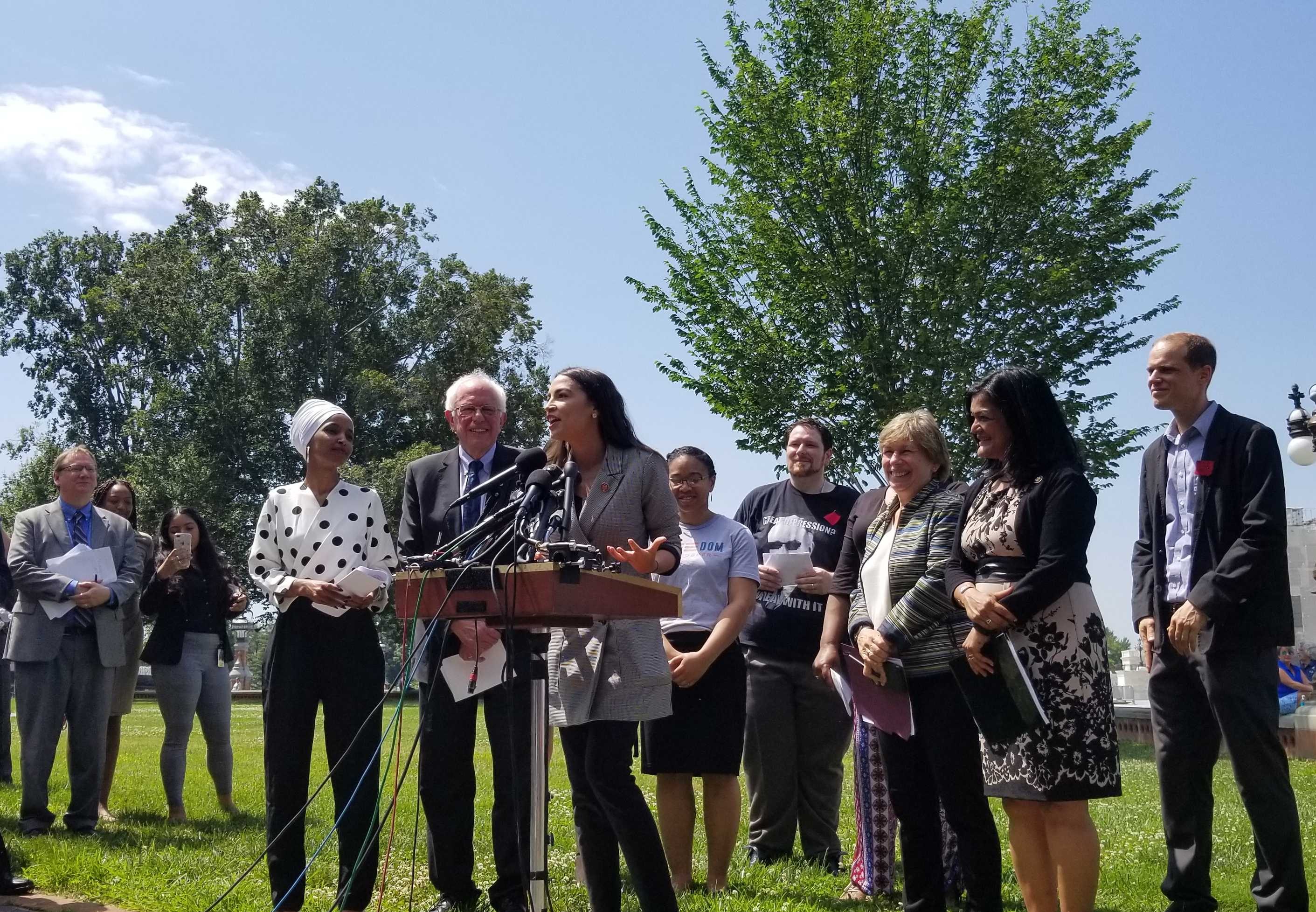Senator and presidential candidate Bernie Sanders (D-VT) introduced legislation on Monday that would forgive more than $1.6 trillion in student debt held by 45 million people across the country.
The proposal, which Sanders introduced alongside Rep. Ilhan Omar (D-MN) and Rep. Pramila Jayapal (D-WA), would make two and four-year public and tribal colleges and universities tuition-free and debt-free. It would also completely eliminate the outstanding $1.6 trillion in student debt by imposing a tax on Wall Street.
This draws a contrast with the plans of other presidential candidates like Julian Castro and Senator Elizabeth Warren (D-MA) who have only proposed partial debt-forgiveness.
“We are going to forgive student debt in this country,” Sanders said during an event in South Carolina on Saturday night. “We have for the first time in the modern history of this country a younger generation that if we don’t change it, and we intend to change it, will have a lower standard of living than their parents, more in debt, lower wages than their parents, unable to buy the house that they desire.”
This is truly a revolutionary proposal: all Americans will get the college education or job training they need, while having all student debt forgiven.
We bailed out Wall Street in 2008. It’s time to tax Wall Street’s greed to help the American people. https://t.co/J4jqrRbLx3
— Bernie Sanders (@SenSanders) June 24, 2019
On Monday morning, Sanders held a press conference outside the Capitol building, introducing the student loan debt forgiveness proposal alongside representatives Jayapal, Omar and Alexandria Ocasio-Cortez (D-NY).
“Under the proposal that we introduced today, all student debt would be canceled in six months,” Sanders said. “By taking this action, we not only provide immediate financial relief to 45 million Americans who have $1.6 trillion in debt, but we will be improving the entire economy. According to a recent study, canceling all student debt would add an estimated $1 trillion to our economy over the next decade and create up to 1.5 million jobs.”
During her time at the podium, Omar drew attention to the racial wealth gap, claiming all Americans are not equally impacted by the “scourge” of student loan debt.
“Students of color face a higher risk of defaulting on their loans and struggle to find jobs to pay off these loans due to discriminatory hiring practices,” Omar said. “Women who already face a wage gap and workplace discrimination owe two-thirds of total student loan debt.”
In her remarks at the conference, Ocasio-Cortez shared a personal anecdote from her time in college. She also highlighted the oddity of how American society considers 17-year-olds too young to join the military or to consume alcohol, but old enough to incur up to $250,000 in debt.
"Now people are in their 30s and older that have taken on insurmountable amounts of debt because we have sold them an empty bill of goods. And what we need to do is make it right." –@AOC #CancelStudentDebt pic.twitter.com/MXQcLBVlLe
— Justice Democrats (@justicedems) June 24, 2019
“I think that in and of itself illustrates the absurdity of our education financing system,” Ocasio-Cortez said. “I will be completely honest. I will disclose my personal stake in this fight because I have student loans too. I think it’s so funny; a year ago I was waiting tables in a restaurant and it was literally easier for me to become the youngest woman in American history elected to Congress than it is to pay off my student loan debt.”
The latest proposal comes on the heels of a similar bill moved by Senator Warren and Rep. James E. Clyburn (D-SC) which plans to provide relief to 75 percent of student borrowers. The bill proposes canceling $50,000 of student debt held by borrowers with household incomes under $100,000. Those belonging to families which earn between $100,000 to $250,000 annually would be eligible for relief on a sliding scale.
“The student debt crisis is real and it’s crushing millions of people — especially people of color,” Warren said. “It’s time to decide: Are we going to be a country that only helps the rich and powerful get richer and more powerful, or are we going to be a country that invests in its future?”
According to Vox, the bill proposed by Sanders will provide more funding to states, tribes, and historically black colleges and universities (HBCUs) to make their undergraduate courses tuition-free. It also proposes introducing grants for low-income students to cover the additional cost of receiving an education apart from tuition and other fees.
Sanders plans to make up for the cost of forgiving student debt loads by taxing Wall Street.
Castro, in his campaign plan released last month, said that he would eliminate tuition at public colleges, universities, community colleges, and technical and vocational schools. If voted to power, he promised to alleviate burdens of existing student loan debt by restricting monthly loan payments to $0 until a borrower is earning at least 250 percent of the federal poverty line, expanding the Pell Grant program to a maximum grant of $10,000, creating a new program of targeted loan forgiveness and reform, and improving the Public Service Loan Forgiveness program.
Meanwhile, Pete Buttigieg has favored creating a federal partnership that will make public tuition affordable for all and completely free for those with lower household incomes. He also proposed largely increasing Pell Grants that help students with basic living expenses and keep up with inflation.
Half of American Voters Oppose Free College, Loan Forgiveness [Poll]



